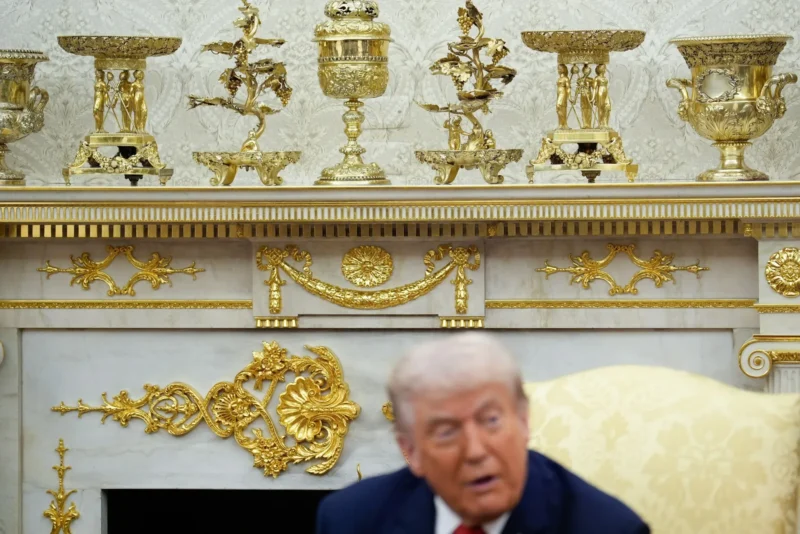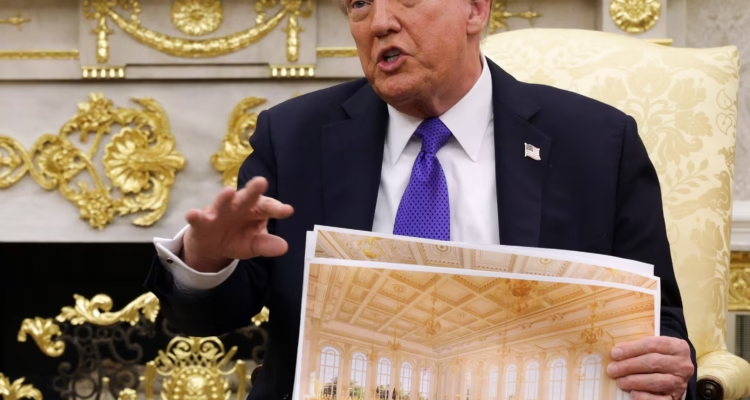Senator Elizabeth Warren has publicly warned that the new White House ballroom, financed through private donations, could be a locus of serious ethical and legal wrongdoing. She’s described it as a potential “golden crime scene,” urging investigators to “follow the money” to see if donations amounted to bribery.

-
Legislative Response: The Stop Ballroom Bribery Act
To address the risk she identifies, Warren and Representative Robert Garcia introduced the Stop Ballroom Bribery Act.
Key provisions include:
-
Banning donations from individuals or entities with a conflict of interest.
-
Preventing donations from being conditioned on favorable treatment by the government.
-
Requiring transparency: disclosing donors, restricting anonymity, and publishing meeting logs.
-
Setting a “cooling-off” period before donors can lobby the administration.
-
Enabling civil and criminal penalties for violations.
-

Warren, along with several other senators, has pressed the Trust for the National Mall (the nonprofit overseeing the ballroom fundraising) with detailed questions.
“Government officials and corporate executives should read the law: the statute of limitations is five years for federal bribery charges,” Warren said, noting that a future Justice Department could still be within the window to launch an investigation.
Their concerns include:
-
Whether donor names and amounts are being hidden.
-
Whether the Trust is acting as a vehicle for “influence-peddling” — i.e., wealthy donors giving money in hopes of special access or favorable treatment.
-
Whether the Trust’s structure is being abused for political fundraising, rather than genuine philanthropic purposes.
-
Bribery Concerns
Warren and her colleagues explicitly raise “quid pro quo” concerns: that corporations giving large donations might expect something in return.
As one example, they note that several big donors have business before the Trump administration (e.g., tech companies, contractors), which amplifies the risk of favoritism.
Whether what Warren is calling out amounts to legal corruption (i.e., prosecutable bribery) is a more complicated question.
Arguments in Favor of Her Concerns Being Corrupt
-
Pay-to-Play Dynamics
-
The core of Warren’s critique is that this isn’t just charitable giving: she suggests donors are funding the ballroom because they want influence or favors. That’s the classic “pay-to-play” model.
-
If true, this raises risk of quid pro quo: donors give money, and then expect contracts, regulatory relief, or favorable treatment.
-
Stay tuned.


